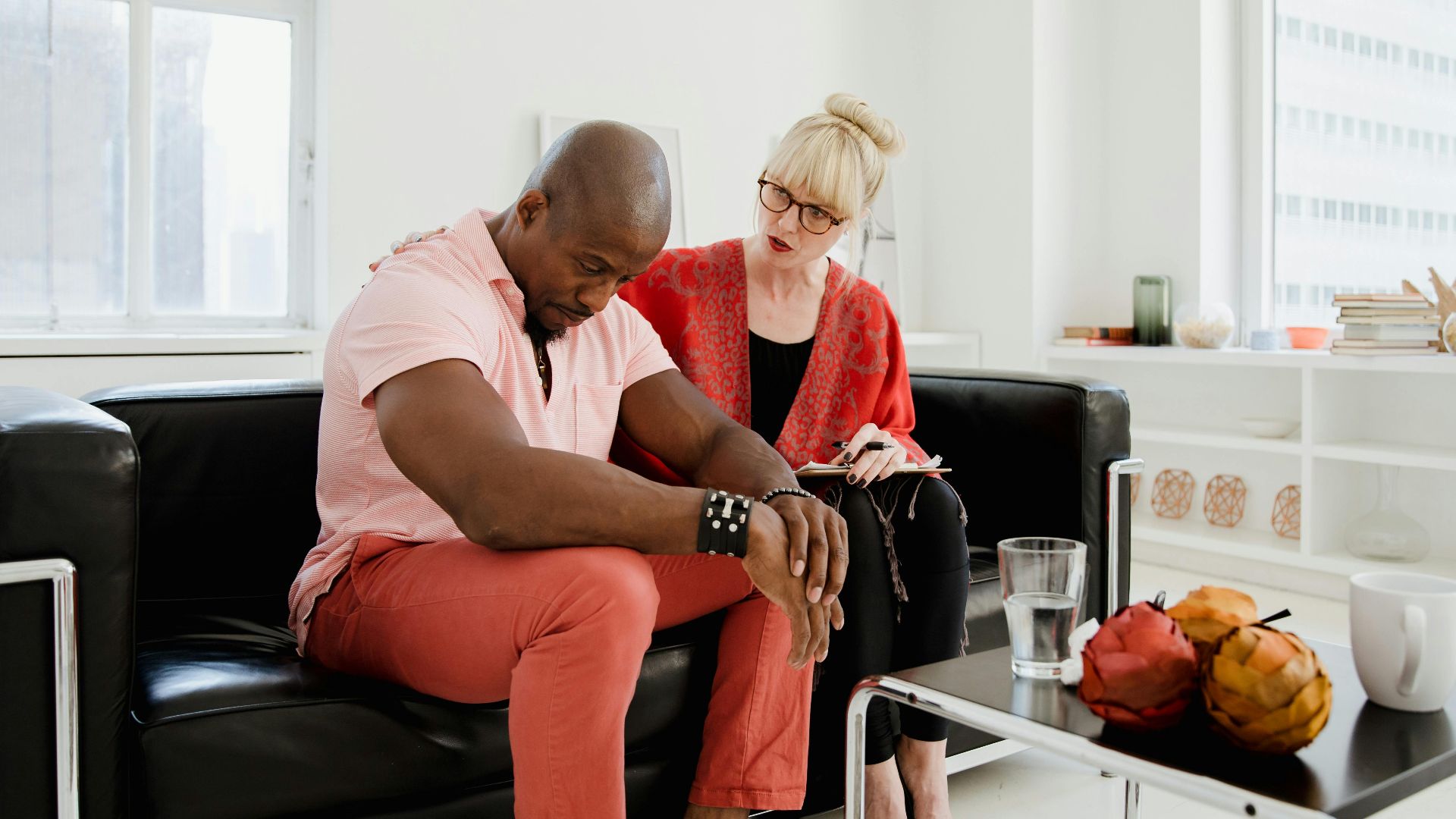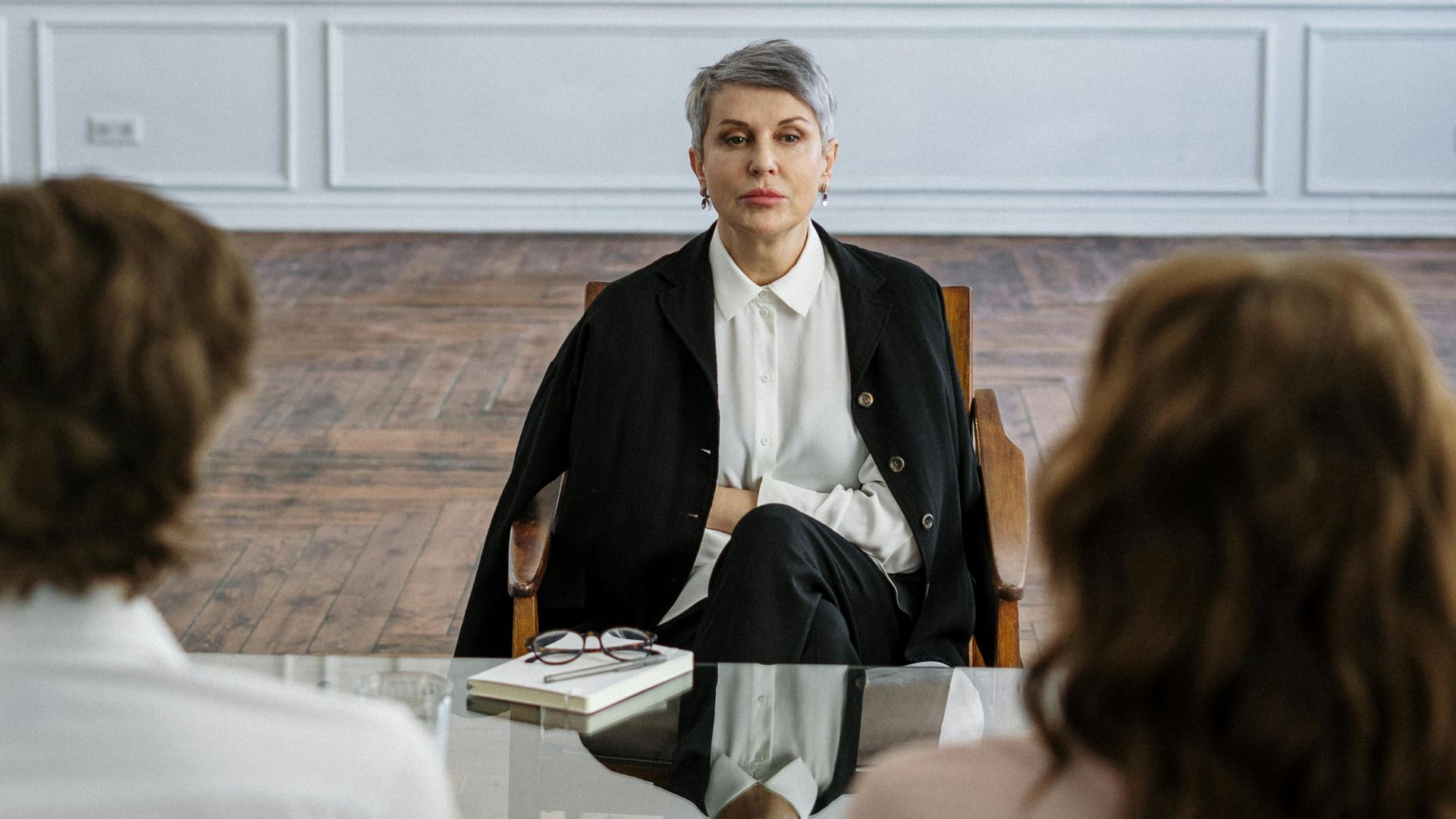10 Things You Should Never Say In Therapy & 10 That Build A Proper Relationship
The Doctor Will See You Now
It doesn’t matter if you’ve seen a therapist for ten years or for ten days—it’s not always easy to open up. Past traumas, difficult family relationships, and even good life changes can all trigger significant responses, and they’re tough to navigate alone. But you don’t have to do it solo. Come with us as we explore how to get the most out of therapy.
1. Half-Truths
It’s hard to open up about things that bother you, but the whole point of therapy is to work on a path forward with someone. Your therapist won’t be able to help you if they don’t get the full, accurate picture of what’s bothering you.
2. “Everything’s Fine”
When you’re in therapy, especially with someone new, it’s tempting to clam up. We don’t always want to share what’s bothering us for fear of embarrassment or even coming across as burdensome. But therapists are there to help you, and they want to know what’s up.
3. Only Part of the Story
Therapy sessions are sort of like memoirs—we tend to paint ourselves in the best light. The thing is, therapy thrives with every detail, so it’s important to share them. It doesn’t matter how you come across; forgoing certain details can actually be detrimental to your success.
4. Don’t Downplay Symptoms
Therapists and doctors alike need to know the full extent of your symptoms. Inaccurate diagnoses often stem from downplayed symptoms or little fibs about what’s really troubling you. If you want to build a path forward, remember you’re in a safe space to do so.
5. Don’t Exaggerate Symptoms Either
On the other hand, it’s important not to exaggerate symptoms either. By making a mountain out of a molehill, your therapist can easily misdiagnose or focus on irrelevant details. Try to be as honest as possible when you’re on that sofa.
 Photo By: Kaboompics.com on Pexels
Photo By: Kaboompics.com on Pexels
6. Trying to Build a Friendship
Therapists can feel like friends, but they aren’t really. You’re in a professional setting, and it’s important for them to maintain that boundary. Though patients may overstep, try to keep the atmosphere in mind—it isn’t personal if professionals maintain their own lines in the sand.
7. Negative Self-Talk
“I feel like I’m boring you with my stories.” “Sorry, I probably told you this already.” “I’m sorry, I’m such a basket case.” It’s so easy to fall into the trap of negative self-talk, and while your therapist can work on those feelings with you, you can try to catch them as they surface. Remember: they’re there to help you, so there’s no need to apologize.
8. Asking About Other Patients
Hey, we all want the tea on people we went to high school with. We also love hearing about work drama. But professional therapy is completely different, so don’t ask about other patients. A good therapist won’t tell you anything anyway.
9. Immediately Asking for a Prescription
It’s never a bad thing to walk in with potential areas of improvement. However, let your therapist make the call on whether you need a prescription. Most professionals won’t just dole out medication, nor should they, and they might have other strategies in place.
 Antoni Shkraba Studio on Pexels
Antoni Shkraba Studio on Pexels
10. Assuming Therapy Won’t Work
A healthy dose of skepticism is totally normal. You can even share as much with your therapist. But a big part of moving forward is the willingness to change. If you walk in with the assumption that therapy is hogwash, it likely won’t have the same effect.
Your therapist’s office is meant to be a safe environment. You should feel comfortable sharing your emotions and trauma, knowing that someone is there to listen. With that, let’s dive into a few things you can always share.
1. Significant Life Events
Big life events don’t have to be negative. Anything from a promotion to a new relationship constitutes new changes, and those also have a place in the office. Whatever it is that affects you should be mentioned!
2. What’s Bothering You
It sounds easy, but opening up isn’t that simple. Sometimes, we keep our cards close to the chest, especially if we find them embarrassing. However, professional therapists want to know what’s on your mind, so don’t be afraid to crack the shell a little.
3. Family Relationships
A big chunk of our personality stems from our environment; family relationships are always a good topic for discussion. It’s okay if they aren’t the best either—your therapist can work with even the most painful relationships.
 Antoni Shkraba Studio on Pexels
Antoni Shkraba Studio on Pexels
4. Past Trauma
Trauma can rewire the brain; it’s difficult to open up about certain events, let alone relive them in therapy. If you aren’t ready to revisit some things, you can share that with your therapist. They won’t force you, and in fact, can provide patient steps that encourage proper healing.
5. When You’re Uncomfortable
Your therapist should know when you’re uncomfortable in their care. Whether it’s talking about trauma or discussing certain people, therapists encourage you to be completely honest. It’s also a good idea to share those feelings so you don’t knock back your progress.
6. Your Goals
Goals look different for everyone, but that’s why you should mention them. Healing journeys aren’t a linear path, and when you talk about your specific needs, therapists can build a plan for you.
7. Ask Questions
No one said you to take advice point blank. If you have any questions about homework, ask your therapist. If you want to know about any potential side effects of a new medication, feel free to inquire.
8. It’s Okay to Disagree
Even therapists make mistakes; they might not provide the best advice sometimes, and it’s okay to disagree with them. While you don’t want to push back on everything they say, you can always have an open discussion about next steps.
9. Struggling With Vulnerability
The last thing you want is to feel pressured in therapy. But if your therapist doesn’t know you’re uncomfortable, they can’t help you in the best way. Share your feelings in the office. If you aren’t ready to relive something, tell them that. There are still plenty of avenues to work on.
10. Honesty About the Relationship
Sometimes a therapist isn’t right for you. It’s not your fault. It’s not their fault. That’s just how it is. If you don’t think you’re getting what you need, you can always share that, too. It’s crucial for both of you to find the best avenue of care.

























